PT-141 - 10mg
Bremelanotide, also known as PT-141, is a peptide that binds to the body's MC3R and MC4R melanocortin receptors and is comparable to the alpha MSH and melanocortin. When it binds, it activates the hypothalamus and other brain areas, increasing sexual desire. Although it was once believed to be utilized to treat both male and female sexual problems, studies have shown that it is also effective in premenopausal women. Therefore, PT-141 is also employed in women who naturally have sexual abnormalities such as female sexual arousal disorder and hypoactive sexual desire.
- The benefits of PT 141 Bremelanotide include:
- Higher sex drive and increased sexual desire
- Greater sexual frequency
- Treatment for erectile dysfunction and/or impotence
- Effective treatment for premenopausal women with Hypoactive Sexual Disorder
- Sexual Dysfunction in women (Sexual Arousal Disorder)
- Increased levels of natural energy.
STRUCTURE
Sequence: Ac-Nle-cyclo(-Asp-His-D-Phe-Arg-Trp-Lys)-OH
Molecular Formula: C50H68N14O10
Molecular Weight: 1024.54 g/mol
CAS: 189691-06-3
Peptide purity: Greater than 99%
Other details: No TFA Salt, No Mannitol
Storage: Lyophilized peptide must be stored at -20°C and peptide solution at 4°C.
DESCRITPION
Bremelanotide (PT-141) is similar to the human hormone alpha-MSH. This peptide was first investigated as a therapy for both men and women, however, it is currently also recommended to women, often in premenopausal age.
Similar to the naturally occurring hormone known as alpha-MSH, PT-141 is an agonist at melanocortin receptors. Early research has shown that the melanocortin hormone controls a variety of physiological processes in the human body. When this isolated hormone was given to animals, it enhanced their sexual abilities.
Studies have shown that PT 141 has agonistic qualities toward MC3R and MC4R melanocortin receptors, which largely cause heightened reactivity in the human body's central nervous system. In these studies, it was revealed that the peptide activates the neurons in the hypothalamus and causes an increase in immunoreactivity after interacting with the MC3R and MC4R receptors. Neurons in the surrounding region of the central nervous system also get stimulated as they intake the chemicals which then leads to sexual arousal in the study animals.
Erectile dysfunction may originate from vascular, neurogenic, and/or psychogenic problems. Between 12 and 35 million men in the United States and more than 150 million men globally are said to be affected by ED.
The American Sexual Health Association defines hypoactive sexual desire disorder in women as a lack of sexual ideas, fantasies, and/or interest in engaging in sexual activity that results in significant emotional suffering and/or issues in their relationship. This sexual condition in women might cause extra physical and mental issues.
In a 2003 phase 1 randomized double-blind placebo-controlled trial involving 24 healthy male participants without erectile dysfunction, it was discovered that the duration of rigid erections was significantly longer for test subjects who received intranasal doses of PT-141, lasting 140 minutes as opposed to 22 minutes in the placebo group. Less than 400 participants participated in a 2004 trial that discovered 1 mg of PT-141 might cause a statistically meaningful "erectile reaction."
Based on the aforementioned findings, phase II research was conducted to examine the safety and effectiveness of PT-141 in test individuals with ED. The injection of PT-141 led to a 3-fold increase in erectile function, according to the results. These results raise the possibility that PT-141 may be used as an alternative ED therapy for patients who do not react to sildenafil.
Furthermore, both test participants with and without ED showed that PT-141 made their erections stiffer. The fact that PT-141 may elicit sexual desire in both men and women without the need for sexual stimulation implies that it has the potential to be used as a therapy for many diseases of sexual desire.
The advantages of PT 141 Bremelanotide include:
● Enhanced sexual drive and desire
● more sexual activity
● Treatment for impotence and/or erectile dysfunction based on clinical study and approval
● Treatment for hypoactive sexual disorder in premenopausal women
● increased natural energy levels.
The most frequent adverse effect is nausea. Flushing and headache are some other, less frequent adverse effects. PT-141 was previously studied through intranasal delivery, however, this had the unintended side effect of raising blood pressure. By administering the peptide through subcutaneous injection, the incidence of increased blood pressure dropped substantially.
REFERENCES
S.A. Kingsberg et al., "Bremelanotide for the Treatment of Hypoactive Sexual Desire Disorder: Two Randomized Phase 3 Trials" [PubMed]
J.G. Pfaus et al., "The neurobiology of bremelanotide for the treatment of hypoactive sexual desire disorder in premenopausal women" [PubMed]
A.H. Clayton et al., "Bremelanotide for female sexual dysfunctions in premenopausal women: a randomized, placebo-controlled dose-finding trial" [PubMed]
D. Mayer et al., "Bremelanotide: New Drug Approved for Treating Hypoactive Sexual Desire Disorder" [PubMed]
S. Cipriani et al., "An evaluation of bremelanotide injection for the treatment of hypoactive sexual desire disorder" [PubMed]
S. Dhillon et al., "Bremelanotide: First Approval" [PubMed]
J. Pfaus et al., "Bremelanotide: an overview of preclinical CNS effects on female sexual function" [PubMed]
B. Mintzes et al., "Bremelanotide and flibanserin for low sexual desire in women: the fallacy of regulatory precedent" [PubMed]
A.N. Edinoff et al., "Bremelanotide for Treatment of Female Hypoactive Sexual Desire" [PubMed]
M.R. Safarinejad et al., "Salvage of sildenafil failures with bremelanotide: a randomized, double-blind, placebo controlled study" [PubMed]
L.E. Diamond et al., "Co-administration of low doses of intranasal PT-141, a melanocortin receptor agonist, and sildenafil to men with erectile dysfunction results in an enhanced erectile response" [PubMed]
A.M. Shadiack et al., "Melanocortins in the treatment of male and female sexual dysfunction" [PubMed]
R. Kumar et al., "Central nervous system agents and erectile dysfunction" [PubMed]
L.E. Diamond et al., "Double-blind, placebo-controlled evaluation of the safety, pharmacokinetic properties and pharmacodynamic effects of intranasal PT-141, a melanocortin receptor agonist, in healthy males and patients with mild-to-moderate erectile dysfunction" [PubMed]
S. Kim et al., "Novel Emerging Therapies for Erectile Dysfunction" [PubMed]
P.B. Molinoff et al., "PT-141: a melanocortin agonist for the treatment of sexual dysfunction" [PubMed]
DISCLAIMER
This product is intendend for lab research and development use only. These studies are performed outside of the body. This product is not medicines or drugs and has not been approved by the FDA or EMA to prevent, treat or cure any medical condition, ailment or disease. Bodily introduction of any kind into humans or animals is strictly forbidden by law. This product should only be handled by licensed, qualified professionals.
All product information provided on this website is for informational and educational purposes only.


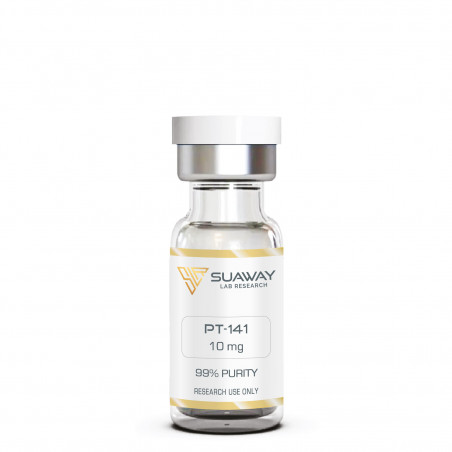

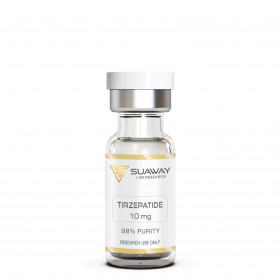
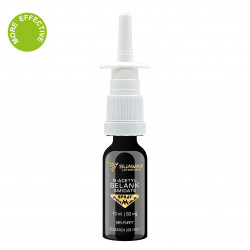
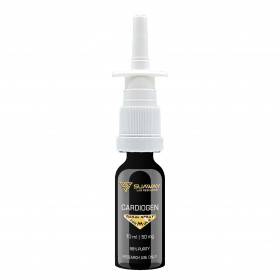
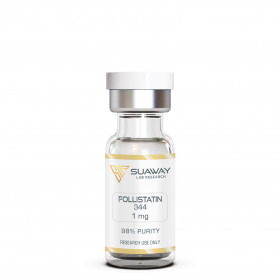
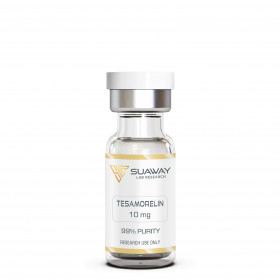
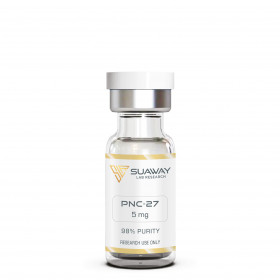
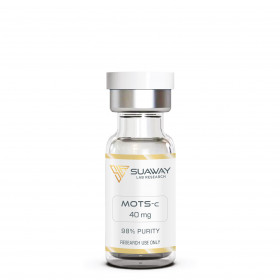
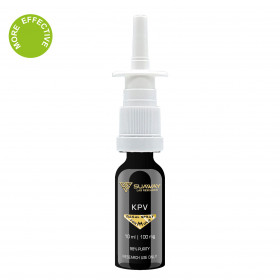
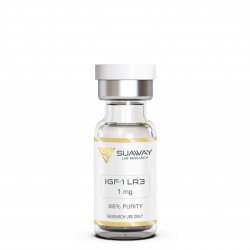
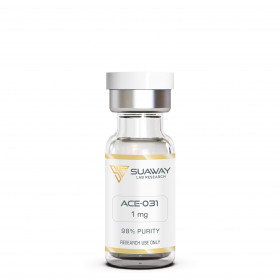
feedback Report comment